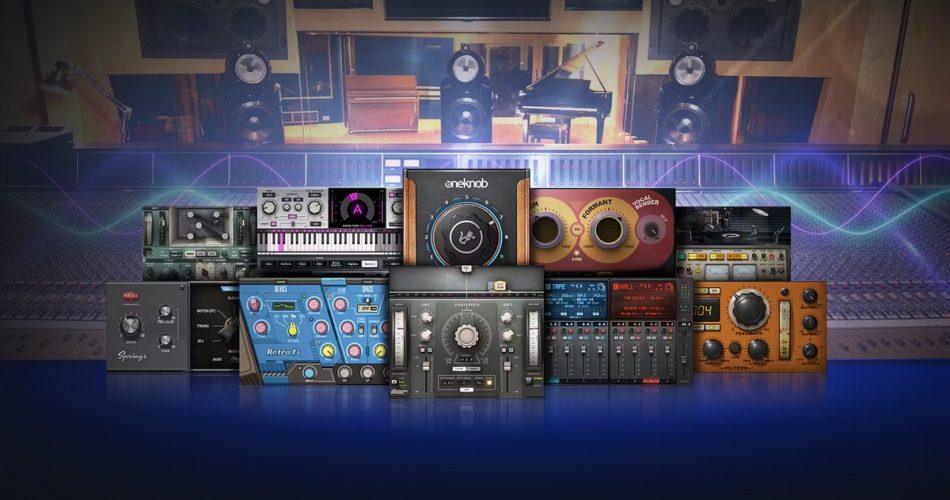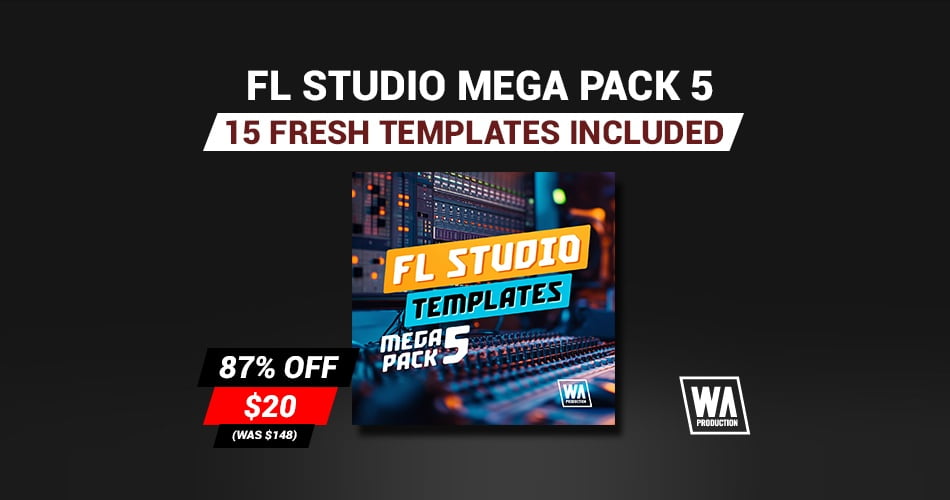Rotary DJ Mixers
Rotary DJ mixers are a type of DJ mixer that features a rotary knob control for adjusting the volume of each channel, as opposed to the traditional sliding fader control. The rotary control is favored by some DJs for its precision and smoothness of control over the audio output. This can be particularly useful for DJs who perform …
The post Rotary DJ Mixers appeared first on Beat Production.
Studio Electronics has introduced the SE-3X, a a three-voice paraphonic synth, inspired by the classic Minimoog, but offering full MIDI control and four discrete, classic hardware filters.… Read More Studio Electronics SE-3X Uber-Synth Like A MID...
https://beatproduction.net/
Rotary DJ mixers are a type of DJ mixer that features a rotary knob control for adjusting the volume of each channel, as opposed to the traditional sliding fader control. The rotary control is favored by some DJs for its precision and smoothness of control over the audio output. This can be particularly useful for DJs who perform live mixing and need to make quick adjustments on the fly. Additionally, some DJs prefer the tactile feel of the rotary knobs over the traditional sliding faders.
Rotary DJ mixers are also considered to be more durable than some other types of DJ mixers, which can be important for DJs who are frequently on the road and using their equipment in demanding environments. This is only one point which usually makes them more expensive than their traditional fader counterparts. Here’s other disinguishing factors that drive up their price:
- Manufacturing costs: Rotary knobs are typically more expensive to produce than traditional sliding faders, which can drive up the overall cost of the mixer.
- High-quality components: Rotary mixers are often made with higher-quality components than traditional mixers, which can make them more expensive to manufacture.
- Brand and reputation: Some brands that produce rotary mixers have a reputation for producing high-end, professional-grade equipment, which can make them more expensive.
- Features: Rotary mixers are often loaded with advanced features, such as multiple inputs and outputs, built-in effects and processors, and more, which can make them more expensive than traditional mixers.
- Rarity: Rotary Mixers are less common than traditional mixers, which can make them more expensive to purchase.
Overall, rotary DJ mixers are typically considered to be a premium product and are priced accordingly.
A decent rotary mixer has historically been an integral part of a DJ’s setup and having that old-school, knob-based control of effects is something that is still prized by many. Here’s six of the very best that money can buy…
Alpha Recording System Model 6700
The flagship of the ARS range looks similar to a classic Bozak mixer, but at a closer look it’s a much more advanced affair. Aside from the handmade Japanese precision engineering, the big selling point are the dedicated three-band isolators on each channel and the five-band master EQ. So the Model 6700 is more like a Bozak on steroids, built to an insanely high standard and with unparalleled sound quality.

Bozak AR-4
The AR-4 is a four-channel desktop unit with a broadly similar layout and feature set to other contemporary mixers. It’s maybe a little surprising that it’s more expensive than the more fully featured AR-6, but you’re paying a premium for the nicer case, wooden side cheeks, VU meters and slicker fit and finish, as compared to the rough-and-ready utilitarian 19-inch rack enclosure of the AR-6. Neither mixer is a bad choice by any means, with similar electronics at their heart. The AR-4 is a solid option, with a link back to a 70s icon.

Superstereo DN78-II
Manufactured in the UK by Formula Sound, the DN78 is available in a few different specifications, but the overall approach is common to all models: super retro in design (you can even spec Bakelite knobs if you fancy a bit of a steampunk vibe), but with modern high-end sound quality. The unique selling point here is the Phantom Valve output stage, designed to add classic valve warmth to the signal. Unlike the MasterSounds 4V, which uses valves as a very subtle buffer, the DN78 pushes the saturation a bit harder, but allows you to bypass the valve stage if you don’t want to colour the signal.

Alpha Recording System Model 1000
As well as crossovers, EQs, speakers and amps, Tokyo brand Alpha Recording System produces Bozak-inspired rotary mixers of various different sizes and formats. The company’s Model 9000 desktop mixer and 4100 rack unit are probably the most conventional products in the line-up, but they also offer some slightly more unusual options. The limited-edition Model 1000 is the baby of the range, but don’t think for a minute that it’s a budget offering. It’s a stripped-down two-channel affair, with three-band isolators per channel plus a three-band master isolator. Other than effects sends, that’s about all you get; all the work has gone into the sound quality, which is absolutely top notch.

Rane MP2015
A lot of big names have made rotary mixers over the years – including the likes of Pioneer, Allen & Heath and the now-defunct Vestax – but the balance of power has shifted recently, leaving smaller upstarts in charge of the majority of the market. The one exception is Rane, whose MP2015 remains the last real option from the bigger commercial brands. Notably different in approach to the boutique models, the four-channel MP2015 includes digital inputs for CDJs, plus USB ports for Traktor/ Serato compatibility. An interesting halfway house, but we suspect many rotary devotees will prefer a more simple analogue approach.

Mastersounds Best Sounding Radius 4V
The flagship model in the MasterSounds range, the 4V is the bigger brother of the Radius 2 in every way, with a pair of extra channels, three-band EQ per channel, an assignable crossfader and LED-based level meters for each input. As a complete package, it maybe doesn’t quite match the versatility of some of the more conventional options from brands such as Pioneer or Allen & Heath, but the sound quality of the Raidus 4V is on another level, thanks in part to a valve circuit which buffers the VCA stage and provides ultra-subtle compression to smooth the signal. You can also add the optional LinearPOWER power supply (£249), which upgrades the sound quality even further.
The post Rotary DJ Mixers appeared first on Beat Production.
This is a syndicated post. To read more, click the source link above.



